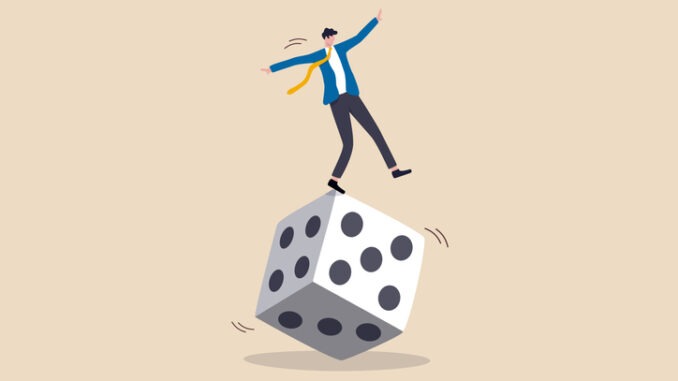
Catherine Lawler, social media manager at the PMA, explains the risks of gambling for young adults and what support is available for those in recovery
Gambling is often described as a ‘hidden harm’. An annual bet on the Grand National or visiting an arcade to play on the two penny machines as a child may seem rather innocuous, but sometimes this can lead to a much more serious habit later in life.
Gambling addiction is the compulsive desire to gamble and being unable to control your gambling. It can be related to any form of gambling, including horse racing, casinos, apps, video games, lottery, scratch cards and increasingly, online gambling. The PMA recently joined forces with the charity The Young Gamers and Gamblers Education Trust (YGAM) to broadcast some podcasts with the aim of helping those working in primary care recognise the early signs of gambling harms in young people.
Lee Willows founded the charity with Keith and Anne Evans following their devastating personal experiences of gambling-related harm. Anne’s son Alan died by suicide in 2010 at the age of just 40 and Anne has worked tirelessly since to help raise awareness so that – in her words – ‘no mother has to experience the pain she did’. Lee himself battled a severe gambling addiction while in his thirties, where he lost everything and planned to take his own life. However, he transformed his life around and now uses his experience to make a positive difference.
Gambling experiences are so widespread that often children see it as a normal part of everyday life. YGAM is particularly keen to engage with those in late childhood and early teenage years who may be showing signs of gambling harms, such as missing school, borrowing or stealing money or becoming depressed and socially withdrawn. A lack of awareness can also be a problem, as YGAM has witnessed parents feeling somewhat relieved when they discover their child has problems with gambling as opposed to drugs or alcohol, when, in fact, it can be just as severe.
A first port of call for young people may well be their GP, as it was for former addict Sam Starsmore, from West Yorkshire. Now aged 30, he works for YGAM as head of delivery: education and is passionate about preventing others from gambling harms. Harms can include mental ill health, the breakdown of relationships, poor performance at work or school and serious financial implications.
Of course, many of us will have happy memories of visiting arcades as a child and playing on slot machines with no negative repercussions later, but as Sam points out, it was his mental health issues that led to the excessive gambling, not the other way around. He told us that it’s difficult to identify that one point in time where you realise you’ve become an addict. Sam remembers going to the seaside as a child and innocently stepping into the world of gambling – being drawn in by the lights and sounds and the intense excitement of have a pound’s worth of two pence pieces.
However, when he reached the age of 16, he became immersed in gambling and the situation escalated. His parents separated and he struggled to emotionally process this and instead began playing poker with friends and visiting bookmakers while still underage. By the time Sam entered recovery, he was more than £40k in debt and having suicidal ideations. Thankfully, he went to his GP and began counselling. He believes that once you accept you are powerless, that’s an important first step to recovery.
Sam is not alone. More than half of the population has participated in some form of gambling in the past year and much more needs to be done to reduce gambling harms with commitments from government, regulators, operators, charities, trade bodies and academics. According to research by the Gambling Commission, exposure to the positive and negative extremes of gambling (eg witnessing big wins or big losses or being exposed to very positive/very negative attitudes about gambling) at an early age can lead to an unhealthy interest in gambling later in life.
Starting with education on what ‘normal’ play looks like will have wide ranging benefits though – enabling young people to accurately benchmark safe play for themselves, for family and friends.
You can listen to the PMA’s full podcast here: https://pma-uk.org/pma-podcasts/


Be the first to comment